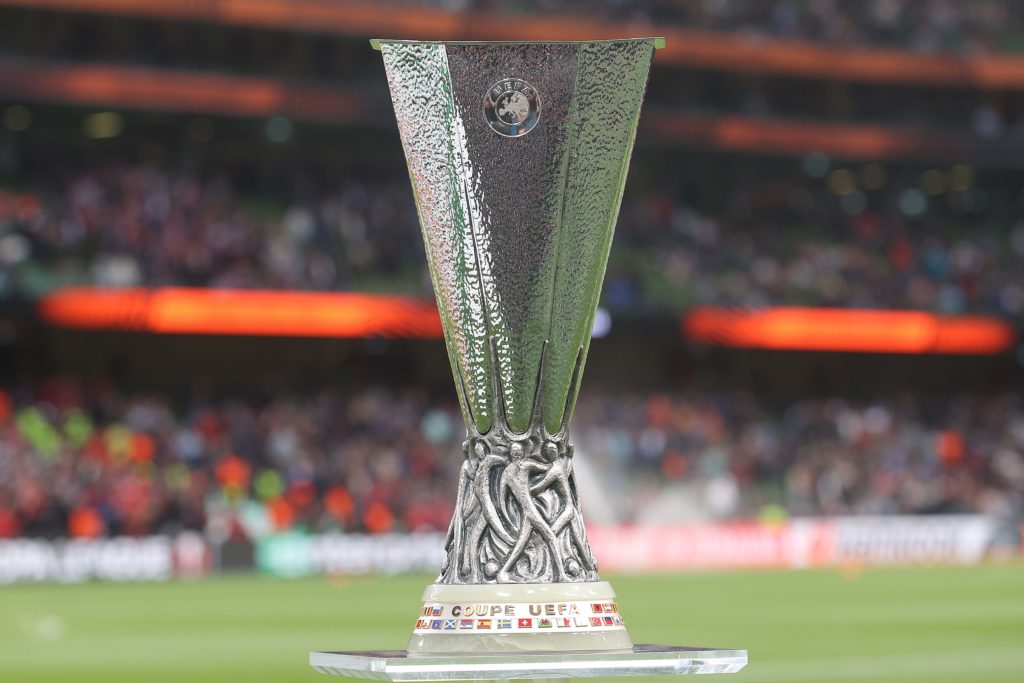Manchester United and Tottenham meet in a record-breaking all-English Europa League final, as England cements its dominance in the history of European club finals.
Manchester United and Tottenham have reached the Europa League final, setting up a historic all-English showdown. It marks the sixth time two English clubs will contest a European final—more than any other country. In doing so, the Premier League surpasses La Liga and Serie A, which have each produced five one-country finals.
The 2025 edition brings more than just national bragging rights. With United and Spurs separated by only one point in the Premier League table, it’s also the closest domestic gap ever recorded between two teams meeting in a European final. Both clubs have endured difficult league seasons, sitting 16th and 17th respectively, but have defied expectations in Europe to reach the decider.
Bilbao 📍#UELfinal pic.twitter.com/HQW1EtkflG
— UEFA Europa League (@EuropaLeague) May 20, 2025
This sharp contrast between domestic struggle and European success has added intrigue to what is already a rare occurrence: two teams from the same country reaching a continental final.
Since the first one-country final took place in 1962, when Atlético Madrid faced Real Madrid in the now-defunct Cup Winners’ Cup, 18 such finals have occurred across UEFA competitions. England’s growing presence in Europe has driven the recent surge, especially over the past two decades. The 2025 Europa League final will be the fourth all-English final since 2019 alone.
Sportingpedia’s analysis of the previous 18 one-country European finals shows that in 12 of those, the club with the higher domestic finish went on to lift the trophy. League performance, while not definitive, often translates into success on the continental stage.
The biggest gap between finalists came in 2011, when Porto, who won Portugal’s top flight with 84 points, beat Braga—who trailed them by 38 points. That final remains the most unbalanced in terms of domestic league standings.
The overlapping run. The flicked assist. The Odobert finish 🥵@SpursOfficial | #UELfinal pic.twitter.com/J10r3W2SpS
— UEFA Europa League (@EuropaLeague) May 20, 2025
At the other end of the spectrum are finals like the upcoming United–Spurs clash. A one-point difference between the teams represents the smallest gap ever in a same-nation final, surpassing four historical examples where the teams were two points apart.
Of the 18 one-country finals to date, seven have featured teams separated by five points or fewer in their league campaigns. Among those seven, the higher-ranked team won four times, while the other three were claimed by the lower-ranked side.
Four finals were decided between teams with a two-point domestic gap: in the 2019 Europa League, Chelsea (72 points) beat Arsenal (70); in the 2008 Champions League, Manchester United (87) beat Chelsea (85) on penalties; in the 2000 Champions League, Real Madrid (62) beat Valencia (64); and in the 2016 Champions League, Real Madrid (90) beat Atletico Madrid (88) on penalties. The 2025 final will now stand alone in this list, featuring the tightest margin of all.
English teams have featured in five one-country finals so far—all since 1972—and have won four of them. Only in 2021 did the Premier League champion fail to prevail, when Manchester City lost the Champions League final to Chelsea despite finishing 19 points ahead in the table.
Tottenham’s first experience in an all-English final came in 1972, when they beat Wolves 3-2 on aggregate in the UEFA Cup. They returned to another all-English final in 2019 but lost the Champions League decider 2-0 to Liverpool, who finished 26 points ahead of them in the league.
The Man Utd squad reveal their favourite club legends ❤️#UELfinal pic.twitter.com/RqrrhxUm3y
— UEFA Europa League (@EuropaLeague) May 20, 2025
For Manchester United, their all-English final memory is more positive. In 2008, they won the Champions League by defeating Chelsea on penalties after both sides finished just two points apart domestically, with United clinching the league title.
The 2025 Europa League final resembles that 2008 encounter—and the 2019 Europa League final between Chelsea and Arsenal—in both margin and intrigue. In both of those matches, the team that finished higher in the league secured the trophy. United and Spurs now find themselves in a similarly even battle, separated by just a single point.
Despite dismal domestic seasons, both clubs have a chance to end their campaigns with European silverware. For Tottenham, it would be their first European trophy since 1984. For United, a win would add to a long history of continental success and rescue a forgettable league year.
Above all, their meeting highlights the Premier League’s dominance in Europe and reinforces a trend that has defined the modern era of continental competition: one-country finals are no longer rare—and increasingly, they’re all-English.
Photo: Crystal Pix/MB Media/Getty Images









